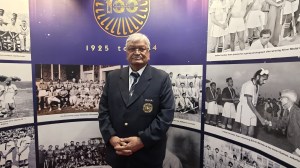Judges not in office at pleasure of President,HC reminds govt
A bench of Justices Siddharth Mridul and Pradeep Nandarajog directed the government to re-draft the memorandum and circulate it to registrars of all high courts.
Making clear that judges of high courts and the Supreme Court do not hold office at the pleasure of the President, Delhi High Court has struck down some inappropriate conditions laid down by the law ministry in a February 2011 circular on new guidelines for foreign visits by judges.
The court directed the Centre to tweak the guidelines since these were untenable,and appeared to be the result of a mindless exercise triggered by over enthusiastic behaviour. Keeping in view the constitutional positions held by judges of the high courts and Supreme Court,indisputably,the language used (in the circular) is inappropriate and treats as if judges of high courts and Supreme Court hold office at the pleasure of the President, the court said,ordering the Centre to put better sense in the guidelines.
A bench of Justices Siddharth Mridul and Pradeep Nandarajog directed the government to re-draft the memorandum and circulate it to registrars of all high courts.
The bench quashed guideline no. 10 of the 11-point comprehensive set of guidelines and instructions for compliance by the CJI and judges of the Supreme Court and high courts.
No.10 constituted 11 terms. The seventh term required a judge to disclose the source of funding and complete break-up of expenditure met and committed on a foreign private visit. The concluding portion used the expression and balance from the budget allocation.
The bench,which had earlier questioned if the government had a charitable fund for judges to meet any shortfall on committed trip expenditure,set aside all the conditions.Paragraph 10,found to be lowering the dignity of constitutional posts held by judges of high courts and the Supreme Court,is quashed, the court said.
It clarified that information of private visits would be given only to the chief justice of the court concerned.
The court also fine-tuned No. 9,divided in five sub-rules with several conditions. Guideline 9 (c) said: During private visits,judges may not accept hospitality from any foreign government/organisation. Foreign Contribution Regulation Act (FCRA) clearance is needed in case hospitality extended by any foreign national/citizen/organisation is accepted.
Incensed,the court had earlier wondered if a judge on a private trip would have to politely refuse a cup of coffee offered by a foreign judge or a sandwich offered by a friendly co-passenger.
The court said while it had no objection to judges not accepting hospitality and obtaining FCRA clearance,this could not have sweeping effect.
We make it clear that if for a courtesy visit to meet a judge or to see the working of a court or visit a place in a foreign country where protocol assistance would be necessary,it would be permissible for a judge,even during a private visit,to seek necessary courtesy, the court said.





- 01
- 02
- 03
- 04
- 05


























